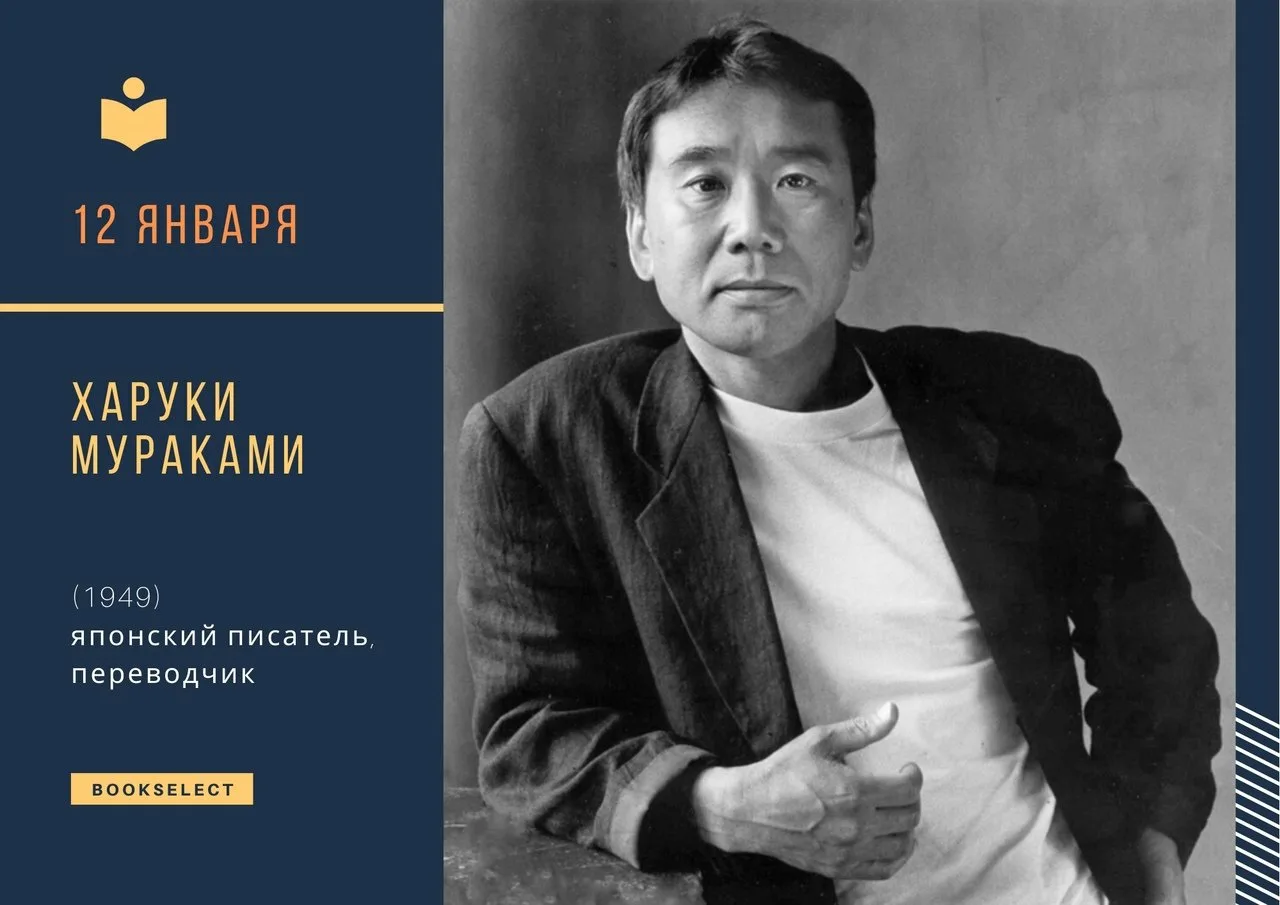Haruki Murakami, one of the most influential and renowned authors of contemporary literature, has captivated readers worldwide with his distinct writing style, blending the surreal with the ordinary. His works are characterized by a unique blend of fantasy, philosophy, and deep introspection, and his exploration of themes such as loneliness, isolation, and the complexities of human existence has earned him a dedicated global following.
Born on January 12, 1949, in Kyoto, Japan, Murakami’s path to becoming a literary giant was not a conventional one. His books, which often blur the boundaries between dreams and reality, have been translated into more than 50 languages and have garnered critical acclaim for their introspective depth and narrative complexity. This article explores Haruki Murakami life, writing style, themes, and his immense impact on literature.
Early Life and Background

Haruki Murakami was born to a family of teachers in Kyoto, Japan. His father was a teacher of Japanese literature, and his mother was a schoolteacher. Though he was exposed to Japanese culture and literature from an early age, Murakami’s path into writing was not immediate. After graduating from Wako University with a degree in drama, he opened a jazz bar in Tokyo, which became an essential part of his life and works. Music, particularly jazz, plays a significant role in his novels, and many of his stories incorporate jazz, classical music, and Western cultural references.
It was not until he was 29 years old that Murakami began his writing career. He wrote his first novel, Hear the Wind Sing, in 1979, which was later awarded the Gunzo Award for New Writers. This debut marked the beginning of what would become an incredibly successful literary career.
Haruki Murakami’s Writing Style
Murakami’s writing style is one of the defining elements that set him apart from other authors. His prose is spare, straightforward, and often infused with elements of surrealism. His novels often contain long, descriptive passages, but the language remains simple and accessible. One of the hallmarks of Murakami’s work is his blending of the fantastical with the mundane. Everyday activities and interactions are often juxtaposed with extraordinary, dream-like events, creating a world that feels both familiar and surreal.
Additionally, Murakami frequently employs first-person narratives and unreliable narrators, which allow him to explore the complexities of individual consciousness. His protagonists often find themselves in situations that defy logic and reason, making it difficult to differentiate between what is real and what is imagined. This deliberate ambiguity is a key feature in many of his works, prompting readers to engage in a deeper exploration of meaning and interpretation.
One of the most prominent characteristics of Murakami’s writing is the presence of magical realism. His works often include supernatural occurrences and unusual characters, such as talking cats, ghosts, and alternate realities. This fantastical layer provides a backdrop for deeper emotional and philosophical explorations.
Major Themes in Murakami’s Work

Haruki Murakami’s novels explore a wide range of themes, often rooted in existential philosophy and the human condition. Some of the most common themes in his work include:
1. Loneliness and Isolation
A central theme in much of Murakami’s writing is the experience of loneliness. His protagonists are often solitary figures, disconnected from the world around them, seeking meaning and purpose in their lives. This sense of isolation is often explored in both emotional and physical terms. Whether it’s a character living alone or grappling with a broken relationship, Murakami’s works consistently explore the challenges and complexities of being alone in the world.
2. The Search for Identity
Murakami’s characters frequently embark on journeys of self-discovery, struggling to understand their own identities in the face of an increasingly confusing and fragmented world. These journeys often take the form of quests, literal or metaphorical, and involve encounters with strange characters or situations that force the protagonist to confront their innermost fears and desires.
3. The Unconscious and Dreams
In Murakami’s work, the boundary between dreams and reality is often blurred. Characters frequently experience strange dreams or have encounters with characters who seem to exist in a dreamlike state. These dream sequences are used not just as plot devices, but as tools for self-reflection and the exploration of the subconscious mind. The blurred lines between the real and the imaginary mirror the fragmented nature of identity and reality.
4. Music and Pop Culture
As someone deeply influenced by Western music, particularly jazz and rock, Murakami often incorporates musical references in his novels. Music is not merely a backdrop but a central element that influences the characters and the plot. His characters frequently bond over shared musical interests, and music serves as a metaphor for the rhythms and patterns of life. Additionally, Murakami’s works are filled with references to Western pop culture, from literature to film, underscoring his global outlook and eclectic sensibility.
5. Time and Memory
The concept of time, and its fluid nature, is another recurrent theme in Murakami’s novels. Characters often experience time in non-linear ways, moving between the past, present, and future. Memory plays an important role in shaping the characters’ identities and their perceptions of reality. The manipulation of time and memory allows Murakami to explore themes of loss, regret, and the passage of time, all of which are central to the human experience.
Key Works by Haruki Murakami

Some of Haruki Murakami most influential and beloved works include:
1. Norwegian Wood (1987)
This novel is perhaps one of Murakami’s most accessible and widely read works. Norwegian Wood is a coming-of-age story set against the backdrop of 1960s Tokyo. It explores themes of love, loss, and mental health, focusing on the protagonist’s complex relationships with two women. The novel’s more grounded and realistic style marked a departure from Murakami’s earlier, more surreal works.
2. Kafka on the Shore (2002)
One of Murakami’s most acclaimed novels, Kafka on the Shore intertwines the stories of two characters, Kafka, a 15-year-old runaway, and Nakata, a mysterious man with the ability to communicate with cats. The novel blends reality and fantasy, with themes of fate, memory, and self-discovery. The magical realism present in the novel is rich, and like many of Murakami’s works, it invites readers to contemplate the nature of free will and destiny.
3. 1Q84 (2009-2010)
A complex, multi-layered narrative, 1Q84 follows two protagonists, Aomame and Tengo, as they navigate a strange, parallel world that mirrors Tokyo in 1984. The novel explores themes of control, alternate realities, and the intertwining of fate and love. It is considered one of Murakami’s most ambitious works, blending elements of mystery, romance, and speculative fiction.
4. The Wind-Up Bird Chronicle (1994-1995)
This novel, regarded as one of Murakami’s masterpieces, follows a Tokyo man named Toru Okada as he searches for his missing wife, Kumiko. It is a deeply philosophical work, exploring the nature of human relationships, war, and personal transformation. The novel mixes surrealism with existential themes, as Toru’s journey takes him into mysterious and often unsettling territories.
Murakami’s Impact on Global Literature

Haruki Murakami’s influence on literature cannot be overstated. His works have had a profound impact on readers and writers around the world, particularly in the West, where he has become a cultural icon. Murakami’s style and themes have inspired countless authors, and his books have sparked discussions on topics such as identity, the subconscious, and the role of fiction in exploring the human condition.
His works have been adapted into films, stage productions, and even operas, further cementing his place as a global literary figure. Despite being frequently nominated for the Nobel Prize in Literature, Murakami remains an enigmatic figure, rarely participating in public events and interviews. This sense of mystery only adds to his allure and the allure of his work.
Conclusion
Haruki Murakami’s literary career is a testament to the power of imagination and storytelling. His unique blend of the surreal and the real, along with his exploration of universal themes such as loneliness, identity, and the subconscious, have made him one of the most beloved authors of our time. Whether through his minimalist prose, his musical references, or his ability to blur the lines between reality and dreams, Murakami’s works continue to captivate readers around the world. His influence on literature is undeniable, and his stories will undoubtedly resonate with readers for generations to come.










